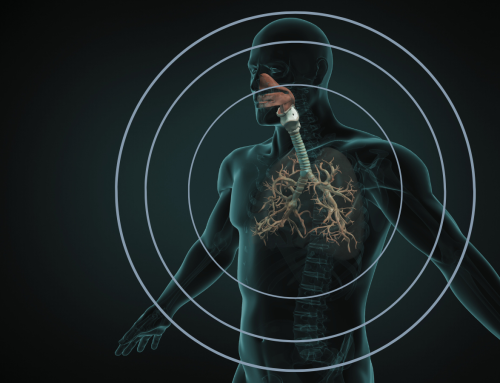If you have a persistent cough it can be more than just a nuisance, it can significantly impact your daily life and wellbeing. Understanding the mechanisms behind chronic cough and the body’s cough reflex can help you manage your cough more effectively and cope better.
What is a chronic cough?
Chronic cough is defined as a cough lasting longer than eight weeks in adults.
There’s no single cause of chronic cough, it can be down to a combination of factors. Understanding what’s driving your symptoms is key to getting the right treatment. These are some of the most common causes:
- Postnasal drip is one of the most frequent causes. Mucus from the nose and sinuses runs down the back of your throat, irritating the airway and making you cough.
- Asthma can present as a chronic cough, especially in cough-variant asthma where you might not notice wheezing or shortness of breath.
- Reflux (GERD) is another main cause. Stomach acid travels back up the esophagus, irritating the throat and airways and triggering a reflex cough.
- Smoking damages the lungs and airway lining, often leading to a persistent “smoker’s cough.” It’s also linked to more serious conditions like chronic bronchitis and COPD.
- Allergies can cause inflammation in the airways, increase mucus production and leave you with a lingering cough.
- Respiratory infections, like bronchitis or the after-effects of a cold or flu, can lead to a cough that sticks around for weeks, even after you feel otherwise well.
- Certain medications, especially ACE inhibitors used to treat high blood pressure, are known to cause dry, persistent coughing as a side effect.
- Chronic bronchitis is a long-term condition that causes a daily cough with phlegm, usually in smokers, due to over production of mucus in the lungs.
- Other lung conditions, such as COPD, bronchiectasis or interstitial lung disease, can also cause long-term coughing due to ongoing inflammation or structural lung changes.
- Upper Airway Cough Syndrome (UACS) is a broader term often used when the cough seems to be triggered by upper airway irritation, usually linked to postnasal drip or rhinitis.
The cough reflex is a protective mechanism
The cough reflex is your body’s defence mechanism to clear your airways of irritants and secretions. When sensory nerves in the airway detect an irritant, they send signals to the brain, which then triggers a forceful expulsion of air from the lungs to remove the offending substance. While this reflex is vital for protecting the respiratory system, in patients with chronic cough this mechanism becomes hypersensitive, leading to coughing episodes triggered by minimal stimuli.
Role of respiratory physiotherapy in managing chronic cough
At Air Physiotherapy, we don’t just treat the symptoms of chronic cough, we look at the underlying patterns that might be keeping it going. While traditional medical treatment often targets conditions like asthma, reflux or infection, chronic cough can persist even when these are well managed. That’s where respiratory physiotherapy steps in.
Our physiotherapists will help you learn what triggers your cough, how to spot early signs and how to use strategies to stop it from escalating. We often work alongside speech and language therapists and respiratory doctors to tailor an expert treatment plan. Strategies might include breathing control exercises, hydration advice and simple techniques like swallowing or humming to interrupt the reflex.
We also look at your overall breathing pattern, posture and muscle activity. This is because chronic cough rarely exists in isolation. Often, it’s linked to poor breathing habits or tension in the throat and upper chest. Our approach is tailored, evidence-informed and designed to reduce symptoms and improve your quality of life.
Many of our patients have found breathing pattern re-education transforms their quality of life. With consistency and the right support, it can make a big difference.





